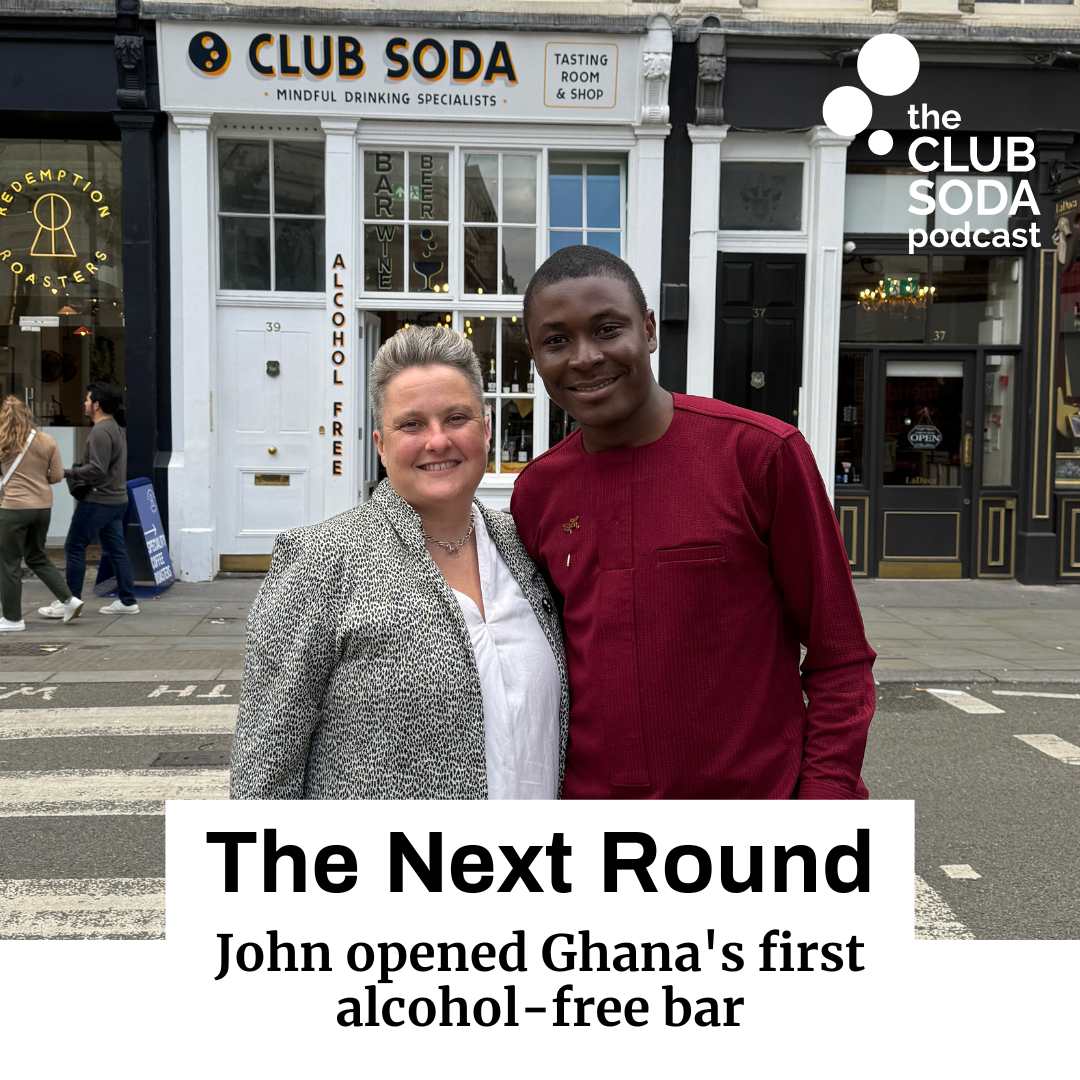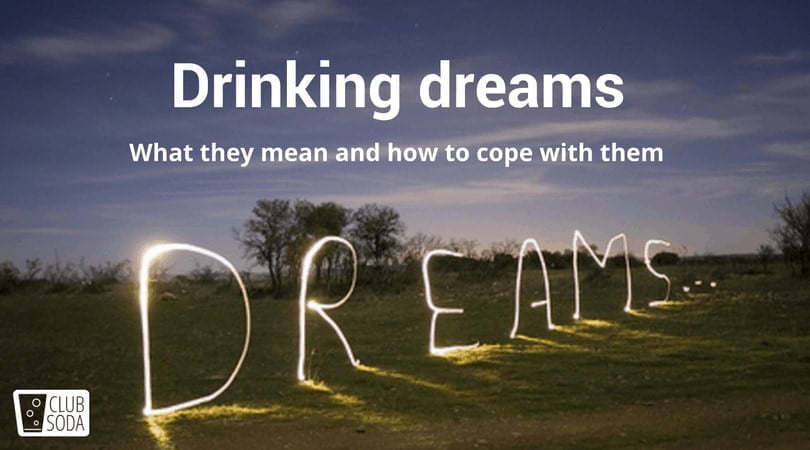
This website uses cookies to improve your experience. We'll assume you're ok with this, but you can opt-out if you wish. Read More
The Next Round: What happens after you change your drinking?


There is no single explanation for the reason or function of dreams. Some experts claim they are just random images created by the brain in response to things we have seen while we are awake. Others suggest they are a way of preparing us for future stresses, almost functioning as a practice run. In this article we look at how alcohol really affects your dreams, and what it means for you when changing your drinking habits.
Contrary to popular opinion (and how some people may feel), alcohol doesn’t actually help you sleep. The science is this. Sleep takes place in a cycle which comprises of 5 stages. These stages can be divided into REM sleep and non-REM sleep. REM stands for Rapid Eye Movement, which makes up about 25% of our sleeping time. REM is the stage where we are most likely to dream, because our bodies are more energized. It is thought that REM sleep occurs because it is part of the process of storing memories, learning, and balancing our moods. REM stage is when we are most likely to dream. And alcohol causes REM sleep to decrease and then increase rapidly.
During the first part of the night, alcohol increases non-REM sleep, which includes deep sleep. Research done by the London Sleep Centre shows that the more we drink, the less REM sleep we get. Instead of dreaming, we are more likely to snore and have a feeling of unconsciousness. This can cause the sensation of “blacking out” after drinking too much, which some mistake for getting a good night’s sleep.
However, as your blood-alcohol level drops, the reverse happens. Sleep is shallower and waking up is more frequent. This means more dream recall and more REM sleep, which can cause vivid dreams and nightmares. It is also the reason that you often wake up earlier after a heavy night of drinking. Poor sleep makes you tired, which can make you more inclined to drink again the next night in the hope of better sleep.
It is common for those who have quit drinking alcohol or using other drugs to have occasional relapse dreams. These are when you dream about the experience of using alcohol or drugs again. In the dream, you may be enjoying the experience, or it may feel more like a nightmare. Many people will wake up from these dreams with feelings of guilt, even when the experience obviously wasn’t your choice. You may even view it as an omen that you are about to relapse in reality. Or worse, it might make you want to.
Alcohol Rehab says that dreaming of drinking could be a result of Incentive Sensitisation theory. This means that if you previously used alcohol as a reward, you might still have a subconscious drive to use it in this way again. Drinking dreams might also occur simply because alcohol used to be a large or important part of your life. It is understandable that these memories will continue to influence your dreams, even after quitting. It could also be due to a stressful situation or changes in your life, causing you to dream that you are using alcohol as a coping mechanism.
However, it is important to realise that such dreams are a normal part of changing your drinking habits. Alcohol Rehab argues that they can even be seen as a positive thing. It has been suggested that relapse dreams can be beneficial in a number of ways. This is particularly likely if you wake up feeling discomforted by the dream. This reaction is evidence that you value your new (more) sober life, so there is no need to feel guilty. It can be a good reminder of what might lie in store if a relapse really does occur. It could motivate you to redouble your efforts, and this is always going to be a good thing.
Being drunk in a dream may show that you feel irresponsible or out-of-control in waking life. It could represent careless behaviour, a lack of awareness, or not thinking clearly. Being intoxicated could directly reflect a problem with drinking too much, or indirectly mean something else about your day-to-day life. If you used to drink alcohol to relax, or still do, it might mean that you are feeling stressed or over-worked. If drinking means celebration to you, it might mean you are going through a major life event. You may also need a break or some relaxation.
It may be impossible to stop drinking dreams, as our dreams are ultimately out of our conscious control. However, there are a few things you can do to make them easier. Accepting that dreams of drinking don’t necessarily have anything to do with a relapse in the real world could help relieve any feelings of guilt. Dreaming of being drunk isn’t the same as pressing the f*ck it button and reaching for bottle of wine. You are still on your way to success! And, if you fancy a challenge, some scientists have argued that you can actually control your dreams. Read more here. We also have more about drinking and dreams in this article.
Whatever happens in your sleeping or waking hours, Club Soda and our members are here to help you reach your goals.
This website uses cookies to improve your experience. We'll assume you're ok with this, but you can opt-out if you wish. Read More
| Name | Domain | Purpose | Expiry | Type |
|---|---|---|---|---|
| wpl_user_preference | joinclubsoda.com | WP GDPR Cookie Consent Preferences. | 1 year | HTTP |
| PHPSESSID | www.tickettailor.com | PHP generic session cookie. | 55 years | HTTP |
| AWSALB | www.tickettailor.com | Amazon Web Services Load Balancer cookie. | 7 days | HTTP |
| YSC | youtube.com | YouTube session cookie. | 55 years | HTTP |
| Name | Domain | Purpose | Expiry | Type |
|---|---|---|---|---|
| VISITOR_INFO1_LIVE | youtube.com | YouTube cookie. | 6 months | HTTP |
| Name | Domain | Purpose | Expiry | Type |
|---|---|---|---|---|
| _ga | joinclubsoda.com | Google Universal Analytics long-time unique user tracking identifier. | 2 years | HTTP |
| sbjs_migrations | joinclubsoda.com | Sourcebuster tracking cookie | 55 years | HTTP |
| sbjs_current_add | joinclubsoda.com | Sourcebuster tracking cookie | 55 years | HTTP |
| sbjs_first_add | joinclubsoda.com | Sourcebuster tracking cookie | 55 years | HTTP |
| sbjs_current | joinclubsoda.com | Sourcebuster tracking cookie | 55 years | HTTP |
| sbjs_first | joinclubsoda.com | Sourcebuster tracking cookie | 55 years | HTTP |
| sbjs_udata | joinclubsoda.com | Sourcebuster tracking cookie | 55 years | HTTP |
| sbjs_session | joinclubsoda.com | SourceBuster Tracking session | Session | HTTP |
| Name | Domain | Purpose | Expiry | Type |
|---|---|---|---|---|
| mailchimp_landing_site | joinclubsoda.com | Mailchimp functional cookie | 28 days | HTTP |
| __cf_bm | tickettailor.com | Generic CloudFlare functional cookie. | Session | HTTP |
| NID | google.com | Google unique id for preferences. | 6 months | HTTP |
| Name | Domain | Purpose | Expiry | Type |
|---|---|---|---|---|
| _ga_10XZMT03ZM | joinclubsoda.com | --- | 2 years | --- |
| AWSALBCORS | www.tickettailor.com | --- | 7 days | --- |
| cf_clearance | tickettailor.com | --- | 1 year | --- |
| VISITOR_PRIVACY_METADATA | youtube.com | --- | 6 months | --- |
Join Club Soda for 10% off your first order of drinks for UK delivery. Plus get our latest news and special offers for members to choose better drinks, change your drinking and connect with others.
If you get an error message with this form, you can also sign up at eepurl.com/dl5hPn